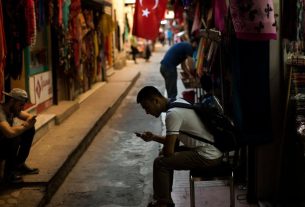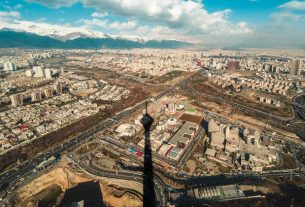Recent reports reveal that the Serbian government has been using spyware to monitor activists, journalists, and critics of President Aleksandar Vučić’s regime. According to a detailed investigation by Amnesty International, the Serbian intelligence agency, BIA (Security Information Agency), has installed spyware on the phones of those involved in protests and political opposition, marking a significant escalation in the government’s attempts to suppress dissent.
Spyware and Surveillance
One of the key allegations in the report centers on the use of Israeli-made software, notably Cellebrite, to unlock and install surveillance tools like NoviSpy on the mobile devices of political opponents. Amnesty International’s forensic analysis of devices belonging to dozens of activists and journalists provided evidence of these intrusive monitoring tactics. These tools allow the BIA to access contacts, messages, and even remotely activate microphones and cameras, giving authorities total visibility into the activities and conversations of targeted individuals.
This espionage came to light in early November 2023, when Nikola Ristić, a prominent youth activist, was detained by the BIA during protests in Belgrade. Ristić, who had been vocal in demanding political accountability following a fatal incident at a Novi Sad railway station, was interrogated while his phone was seized and reportedly tampered with. It was during this period that spyware was installed on his device, alongside several other activists and journalists who have also been affected.
Political Context and Growing Protests
The rise in surveillance has occurred amidst growing public discontent with President Vučić’s leadership. Protests have escalated over several issues, including a deadly accident at the Novi Sad train station that killed 15 people. Protesters, including students and activists, have called for Vučić’s resignation, citing corruption, governance failures, and systemic mismanagement. These demonstrations have been met with increased government crackdowns and media censorship, with authorities frequently dismissing the protests as foreign-backed destabilization efforts.
Vučić has been in power since 2017, but his influence stretches back to his time as deputy prime minister in 2012. Despite his public pro-European rhetoric, his government has been criticized for undermining democratic institutions, curbing press freedom, and consolidating power within the Serbian Progressive Party (SNS). Vučić controls key state institutions, including the judiciary, security services, and media, and has faced accusations of fostering an environment of fear and repression.
The Role of International Technology
The spyware scandal has raised questions about Serbia’s reliance on international technology to monitor its citizens. Cellebrite, an Israeli firm, confirmed that it has cooperated with Serbian authorities but stressed that its software should not be used for politically motivated surveillance. The company warned that if Serbia’s use of the software violates its terms of service, the contract could be terminated. Amnesty’s findings underscore concerns that Serbian authorities may be leveraging foreign-made surveillance tools to bypass legal and ethical boundaries.
The software was reportedly purchased by Serbia through the UN Office for Project Services, funded by Norway, for the purpose of enhancing its capabilities to combat organized crime. However, the misuse of such technology for political repression has raised alarms, particularly in light of Serbia’s longstanding aspirations to join the European Union. The country’s track record on human rights and democratic reforms, including its relations with Russia, has complicated its EU accession bid.
Government Denials and International Concerns
The Serbian government has vehemently denied the allegations, dismissing Amnesty’s findings as “trivial” and “sensationalist.” Deputy Prime Minister Aleksandar Vulin, a staunch ally of Vučić, dismissed the report as part of a broader “hybrid war” against Serbia. Meanwhile, critics argue that the increasing surveillance of journalists and activists is a clear attempt to stifle dissent and weaken opposition forces.
In Serbia’s media landscape, which is largely under the control of Vučić’s allies, journalists face increasing risks of censorship, intimidation, and even violence. Nedim Sejdinović, a journalist in Belgrade, highlighted the long-standing efforts by the state to suppress critical voices. According to Sejdinović, these surveillance tactics represent the latest phase in a broader effort to eliminate independent journalism and political opposition.
Rising Protests and the Future of Serbian Democracy
The protests against Vučić’s government represent a significant challenge to his long-standing dominance. Young people, especially university students, have been at the forefront of the demonstrations, with schools and universities suspending operations in solidarity. Despite some political concessions, such as the resignation of a few cabinet ministers, protesters remain unsatisfied, demanding broader structural changes and an end to what they see as an authoritarian regime.
Political analysts, including Zoran Gavrilović, director of the Bureau for Social Research, have warned that the situation could deteriorate further. As Serbia grapples with these tensions, critics fear that the government’s surveillance practices will become more pervasive, with future protests and critical voices increasingly silenced by the state.
For Serbia, the ongoing struggle between government control and democratic freedoms remains at a crossroads, as the international community watches closely for signs of either reform or further repression.
Conclusion
The use of spyware to monitor government critics is not only a violation of privacy but also a stark illustration of the authoritarian tendencies growing within Serbia’s political system. With increasing protests, repression, and international scrutiny, the future of Serbia’s democratic trajectory hinges on whether the government will respect the rights of its citizens or continue its path toward greater authoritarianism.
Image by macrovector on Freepik



